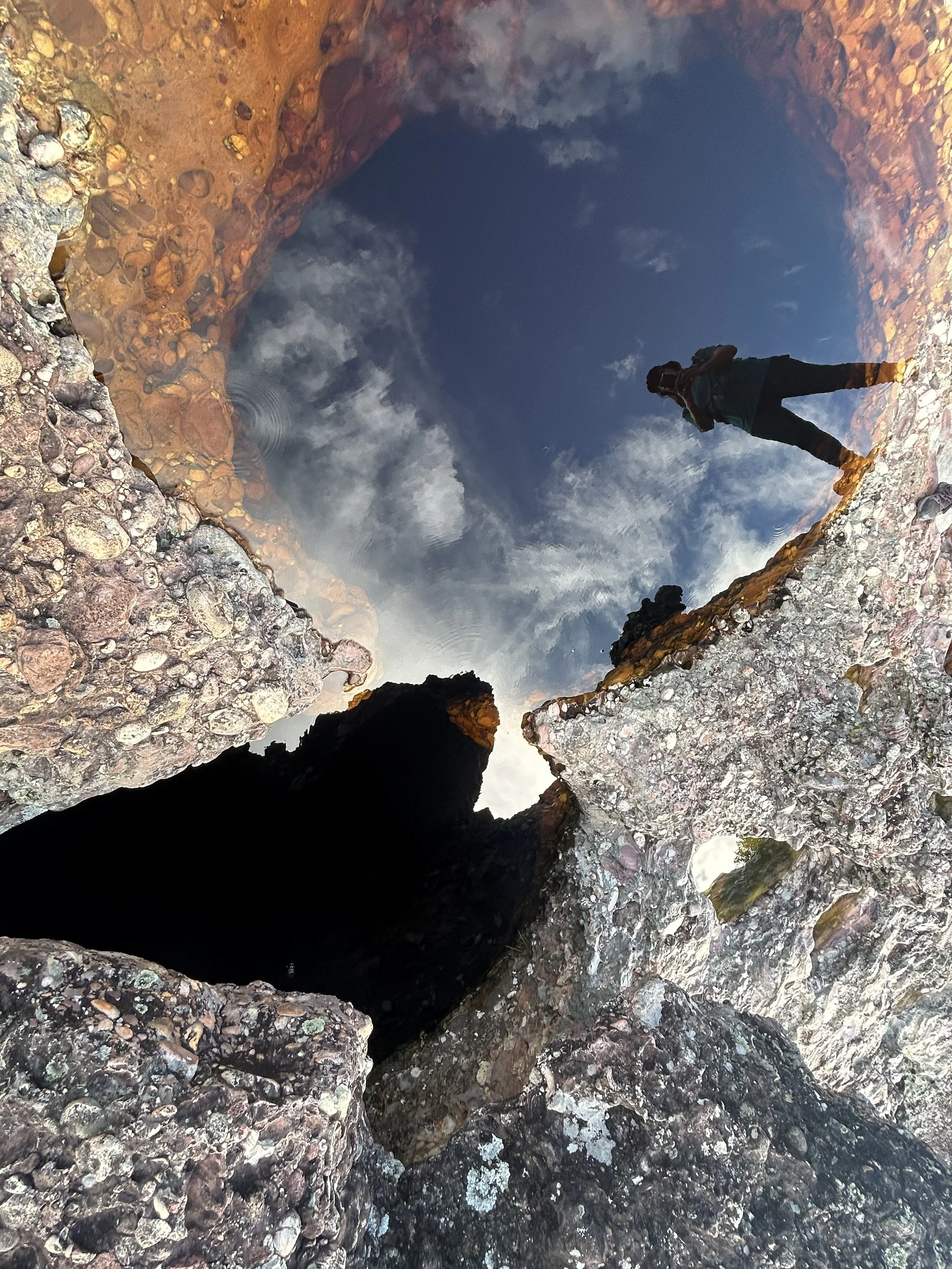BLOG
Bridging Worlds: Depth Psychology, Diversity, equity, inclusion, Spirituality, and Inclusive Cultural Engagement.
Be a good ancestor. Stand for something bigger than yourself. Add value to the Earth during your sojourn.
- Marian Wright Edelman
International Migrants Day: Honoring Movement, Contribution, and Dignity
On International Migrants Day, we honor migration as a timeless human story—one shaped by courage, contribution, and the search for belonging. When guided by care, cooperation, and ethical responsibility, migration strengthens communities, fuels innovation, and upholds dignity. As IOM Director General Amy Pope reminds us, “When we work together, migration works for everyone.”
When Motivation Fades: Navigating Anxiety, Burnout, and Reinvention
There are moments in life when it feels as though we’re standing at the edge of a great crack in the earth. To remain where we are feels impossible, yet crossing requires courage. The ground beneath us shifts, urging us to trust what we cannot yet see.
Crossing Thresholds: Jungian Reflections on Life’s Transitions and Staying True to Oneself
Like a bird poised on the edge of a branch, there comes a moment when staying is no longer possible. Something deeper calls us to open our wings and trust the currents we cannot yet see.
Why Belonging Matters for Immigrants
In a world that often pulls us apart, true connection grounds us. Whether you're rebuilding a sense of home after migration or seeking deeper bonds, community reminds us that we don’t have to do it alone. Healing begins in circles—of trust, of friendship, of shared humanity.
Archetypes in Therapy: Why They Matter
Archetypes in Therapy: Why They Matter
Archetypes are more than mythical symbols—they’re powerful inner patterns that shape how we love, struggle, grow, and heal. Rooted in depth psychology, archetypal therapy helps uncover the unconscious stories influencing your life. In this post, discover how exploring archetypes in therapy can deepen self-awareness and support meaningful transformation.
The Alchemy of Intimacy
Intimacy begins with longing—a quiet ache for connection that runs deeper than words. In Jungian psychology, this longing is the voice of Eros, calling us not just toward another, but inward, to the hidden places of our own soul. Like a red rose submerged in still water, love asks us to feel what lies beneath the surface: the vulnerability, the mystery, and the possibility of transformation. True intimacy is alchemical—it changes us.
Rooted Elsewhere: Anxiety in Immigrants and Expats
Navigating anxiety can be particularly challenging for immigrants, expats, and biculturally raised individuals. Our specialized therapy services in California are designed to address the unique stressors and cultural dynamics you face. With culturally sensitive approaches, our experienced clinicians provide tailored support to help you manage anxiety and achieve a balanced, fulfilling life. Contact us today to learn more about our comprehensive therapy services and start your journey toward healing and self-discovery.
Your Path to a Fulfilling Career Transition
Navigating career transitions can be challenging, especially for tech professionals in California's fast-paced environment. Our comprehensive therapy services are designed to support you through this pivotal change. Whether you need therapy for anxiety, depression, or stress management, our licensed therapists in California are here to help. We offer in-person and online therapy options, ensuring you can access the support you need from anywhere. Contact us today to learn more about how we can help you achieve a successful and fulfilling career transition.
Saci Pererê WITHIN Brazil's cultural diversity
An enchanting illustration capturing the playful and mischievous nature of Saci Pererê. The one-legged folklore character is depicted with a whimsical expression, showcasing his iconic red cap and conveying the lighthearted spirit that makes Saci an enduring symbol in Brazilian folklore.
Cultural Diversity in Brazil's Genetics: Tri-Hybrid, Admixture, Saci Pererê
An enchanting illustration capturing the playful and mischievous nature of Saci Pererê. The one-legged folklore character is depicted with a whimsical expression, showcasing his iconic red cap and conveying the lighthearted spirit that makes Saci an enduring symbol in Brazilian folklore.
Building Lasting Emotional Connections: 5 Vital Ways
meaningful conversations could effectively convey the essence of fostering genuine connections for psychological well-being.
Cultivating Emotional Well-being in Intercultural Relationships
Experience the profound joy of emotional closeness and intimacy with your significant other. Strengthen your bond and build a foundation of trust and understanding, fostering a lasting connection. Discover the transformative power of emotional intimacy and communication. Explore how to nurture your relationship with guidance from experts. Visit our website for valuable resources and support on your journey to a more fulfilling and harmonious connection: https://www.interculturalpsychology.com/"
Unlocking Authenticity: A Depth Psychology Journey
This image embodies the concept of an inner journey and the exploration of one's inner self. It includes elements of mystery and self-reflection, evoking a sense of contemplation and a path leading into the unknown.
2023 WORLD MENTAL HEALTH DAY
2023 WORLD MENTAL HEALTH DAY: A POLLINATOR'S PERSPECTIVE ON MENTAL WELLNESS presenting the Friend Bench program and its impact on reshaping mental wellness.
Unlocking Personal Growth through Intercultural Psychology in Psychotherapy
Cross-Cultural Connection: West Meets East in Learning & Discovery. Embrace Multicultural Exchange & Growth at https://www.interculturalpsychology.com/ - Visit Now!





















